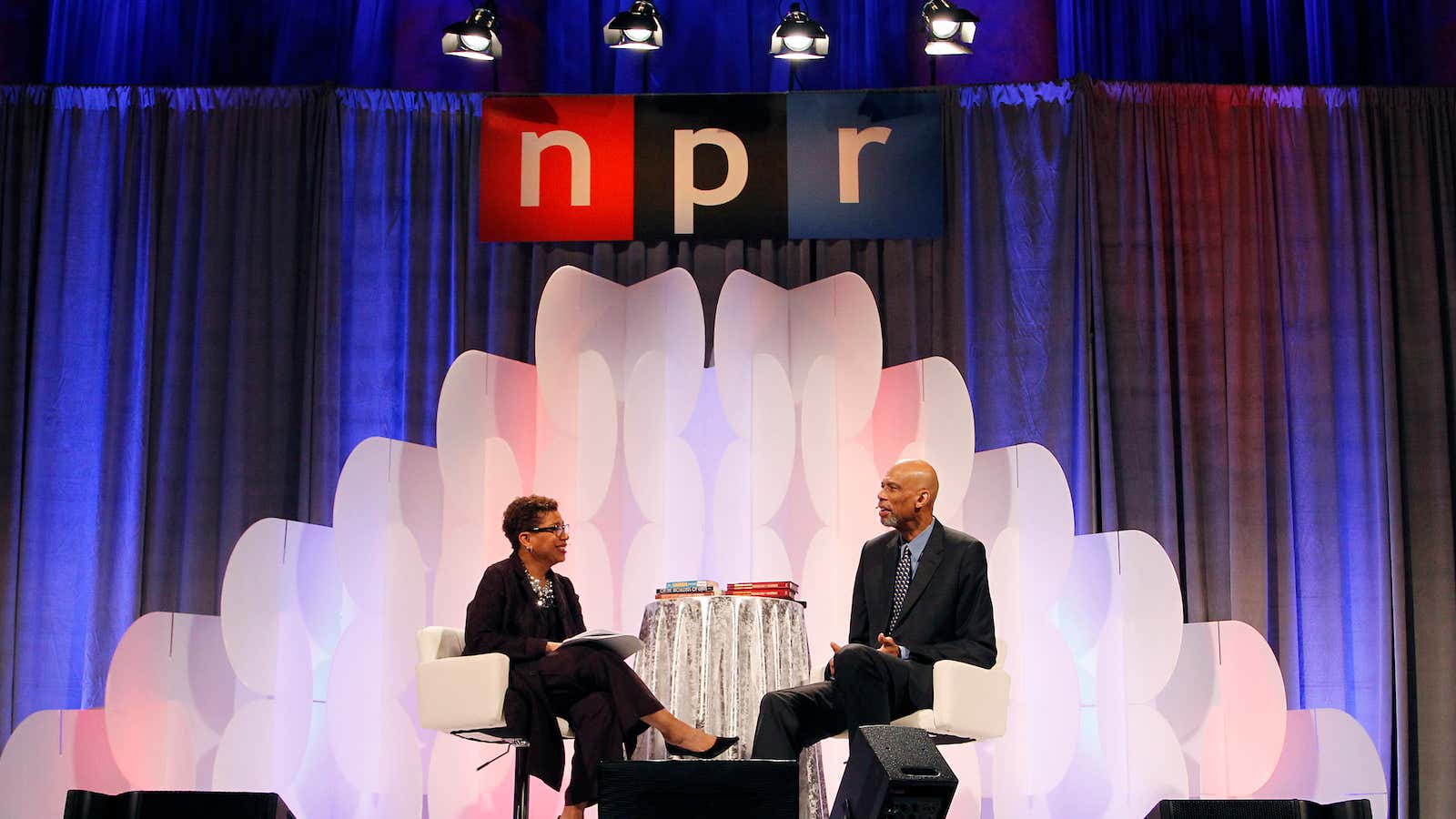National Public Radio (NPR) programs like All Things Considered, Wait Wait Don’t Tell Me, and Morning Edition are beloved by millions of Americans who tune into from their cars and homes every day.
Increasingly, though, people are getting their audio content—news, music, and everything else, including the above programs—via apps and podcasts.
Against this backdrop, NPR made a very odd announcement this week: It banned the promotion of its podcasts and its popular NPR One app on the air. ”We won’t tell people to actively download a podcast or where to find them,” wrote NPR news programming vice president Chris Turpin in a memo to employees on Wednesday (March 16).
What gives? “We do mention podcasts on air, but people know how to find podcasts so we don’t need to get into the technical details of how to download them,” NPR spokesperson Isabel Lara told Quartz in an email. “We continue to work with our member stations to fully realize a complete local/national listening experience on NPR One. Until then, we’ve decided not to promote on air.”
Fans, and even some employees, are calling nonsense.
As Neiman Lab notes, NPR is effectively shooting itself in the foot by not promoting the future of audio—where it has developed cutting-edge programming and technology—to its existing audience.
The most likely explanation is there is a deeper conflict going on. NPR is controlled by local public radio stations, which broadcast its programs and supply most of its funding. To those stations, podcasts and the popular NPR One app are perceived as direct threats, both as competition for listeners and as a challenge to the listener-funded business model stations rely on.
But whether NPR embraces it or not, US podcast listenership already stands at 57 million people per month—more than 20% of the country’s population over the age of 12. That trend will only accelerate as more people stream audio in their cars, where most radio content is consumed.
Much in the same way the US’s newspapers have been forced to embrace the internet over the last decade—at no small cost to both publications’ finances and newsroom headcount—public radio is facing a similar reckoning. NPR is trying to deny an inevitable future.
